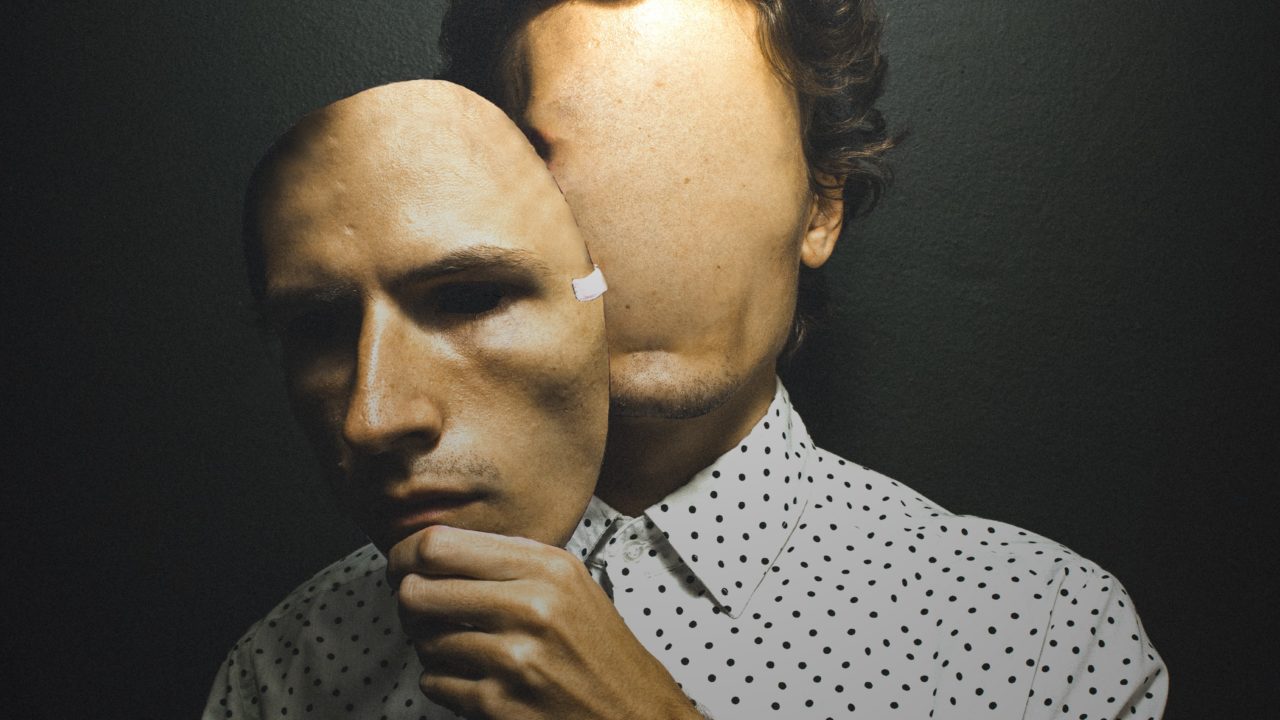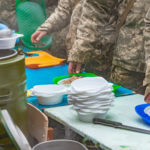by Joshua Thompson, US Army, Special Forces
If I were to tell you that the brain is the most complicated organ in our body, would you believe me? The brain serves multiple tasks within each portion. A healthy brain placates into a healthy and stable individual, contrasted by the brain that may be altered by malfunctions. For the Service Members and Veterans that have been fighting the War on Terror for the last 19 years, their brains have been affected on and off the battlefield. The common visible effect is portrayed emotions.
Merriam Webster defines emotions as: “1- a conscious mental reaction (such as anger or fear) subjectively experienced as strong feelings usually directed toward a specific object and typically accompanied by physiological and behavioral changes in the body, 2- a state of feeling.”
We, as humans, use our emotions as a form of communication from one to another. We associate these emotions with whatever task we are negotiating at the time. Each environment with which a person is associated invokes an emotion. People that are associated with you in each of these environments see you accompanied by the emotions you portray regularly. Each environment requires a mask to be worn to navigate through as we select and choose who sees which emotion we portray.
As a young Special Operations prospect, I wanted to be the best, be among the best, and perform the best at every task. I volunteered for everything; never saying no to any opportunity. With a wife and kids at home, a team at work that counted on me, and the other activities I was involved in, I had a myriad of people engaging me daily.
It was only after I had left the team having completed my team sergeant time, that I began to see the number of changes I had endured over 15 years and 8 combat deployments. I started to realize that my family saw me in one way, depicting an emotion with a particular mask. This mask has the characteristics that, I act cordial, I eat, sleep, and attempt to be a good dad and husband, and I help where I can.
In actuality, deep down inside, I was looking forward to the next TDY or combat trip. I think back on my last trip, reflect on events that transpired where I lost four brothers to an IED. My mind replays the event all the time. I know there is nothing that can be done, warriors do what they volunteer and train to do, but this does not make real life easier. Being at home with your wife and kids is not always a pleasant environment wearing this mask.
I try hard to always be one hundred percent, but coping is difficult. When home, I coped by numbing my pain with alcohol. Excess drinking caused me to shut down around my closest loved ones. Alcohol detached those recent memories; being drunk also helped me to sleep. I am not home a lot so this mask is easy to put on and take off.
During my drive to work, I prepare my mind for what lies ahead and change my mask. When I arrive at work, this mask has the characteristics of an intense training mindset; be the fastest and most explosive in PT, always be strong, show no emotions, shoot the best and fastest. My life outside of work need not be known, my actions at work are everything.
On TDY trips, set the example in training, always placing yourself in a combat mindset. On deployments, I cannot afford to show any emotions, my head must be fixed permanently on nothing but pressuring, pursuing, and punishing the enemy. All other masks mean nothing when I am here. The men around me share a common interest, we share the same mission with no emotions other than to destroy the enemy.
This is my purpose.
The most difficult part is when we lose brothers on every trip. Every time a brother is lost, a part of you dies with them. Trip after trip, lost brother after lost brother, an avalanche is in the making. I coped by staying busy and overworking during the day, attempting to quell the thoughts of those most recent losses from the most previous trip. Keep your Work Mask on. This mask is the easiest and at times the hardest to wear because my mind is always here. As we make it back home, we must change our masks.
My extended friends and family see a different mask. This mask has the characteristics that is the cleanest, ‘Sunday best’ mask; everything in my life is perfect, nothing is wrong, nothing ever has been wrong, it is all good. Sunday best meaning these are the nicest clothes you wear to church. You are showing everyone that this is how you always look, your best. You are always smiling, you make jokes, and you have light conversations.
These non-confrontational conversations are essentially shallow and meaningless. You try to avoid how you really feel. You know how long you will be at this gathering; you tell yourself you just have to play this charade for just so much longer. Deep down, though, all I am thinking about is how we could have handled that combat engagement differently; would that brother, or those brothers, survived if we did it differently? What can we train to prevent that dude from getting shot or those brothers hitting that IED?
You know, unless the person you are talking to was there, they do not care about your experiences. Therefore, you wear that cleanest mask you have because these people do not really care about your real problems anyway, when in reality, they may care they just do not understand where you are coming from.
Only by ourselves, do we see the one without any mask, the person in the mirror. Difficult experiences in life are a force of nature within a soul. It forces one to believe you are alone; there is nobody else that has ever experienced what you are experiencing.
We, Soldiers and Veterans, turn to things that temporarily numb those pains: Alcohol and drugs being the most prevalent and with the extreme outcome, being suicide.
We push the closest ones to us away; we get divorced. The trauma that was faced in real-time is brushed to the side, collected, and left alone without being dealt with other than by the numbing means. Trip after trip, the number of undealt trauma events multiply with our alcohol and drug use, without really taking the necessary time to give our most complicated organ, our brain, the time to truly recover.
The effects of multiple trips in combat and dealing with trauma is directly correlated to the different parts of the brain. The emotional portion of the brain is not as utilized as when you are at home with your spouse and children. In combat you are using another part of your brain, you have to focus, have an in-depth aptitude to plan, control your impulses, always have sound judgment, be able to ramp up at a moment’s notice, and also decelerate at a moment’s notice.
When you are in combat, you think of doing your job; in combat, when you are physically at home, you are thinking of doing your job; in combat. It is truly difficult forcing your brain to turn different parts on and off like a metaphorical light switch.
Months at a time turn into trip after trip, it begins to take a toll on you. A human being can run out of gas. Over the years, I have had multiple friends to commit suicide. I have attended some of the memorial services and listened to the widows speak about their loved one just lost, someone who I once knew; where I heard commonalities I had previously thought or feelings shared. This was scary to me and the turning point for my internal self-telling me, that I need help.
This led me to reach out to my Group Psychiatrist who referred me to Behavioral Health. At first, I was apprehensive to talk to a “shrink”. Everyone knows that if you go to Behavioral Health, you lose your security clearance, right? The help I needed outweighed this. It was also the first question that I asked upon arrival to Behavioral Health. I learned this was a rumor as I also learned if Soldier’s seek behavioral health for combat-related or marital therapy, there is nothing annotated on your security clearance information.
I am currently still in the process of receiving assistance. I believe this will be a life long road to endure. I do not have all the answers nor do I feel completely better for it. However, I do have a voice and if this helps one person, it was worth it.
It is at this time you should know you are not alone. There are assets and resources at your disposal to contact, even anonymously. If you need help, get help. Start with your first-line supervisor. Request to speak with a behavioral specialist. Go see your Chaplain, Group Psychiatrist, see your pastor, reach out to someone. This life is worth living and there are so many others like you out there that need to hear your words, just as I am sharing mine.
Find that person who will listen, whom you feel comfortable opening up to and sharing your stuff with. You might be surprised how much this helps.
https://usasoc.hpw.agilesof.com/index.html – USASOC website that pertains to the holistic approach to soldiers.
https://suicidepreventionlife.org – Call, (800) 273-8255 to receive immediate assistance.
https://veteranscrisisline.net – Call, (800) 273-8255, press 1.
http://giveanhour.org- non-attributable website to speak to a real person that can listen and provide assistance.
https://www.militaryonesource.mil/confidential-help – website that can provide confidential help. Call, 800- 342-9647.
__________________________________
Josh is a former 3rd Group (ODA 3126) Team Sergeant that experienced a MASCAL event during highly kinetic combat operations in RSM 18/19. Leaving the team atmosphere and becoming a 1SG at an institutional training setting was a major culture shock. Over the years he has had multiple friends and teammates take their own lives or fall into deep depression. His personal experiences in Special Forces led him to put his thoughts into a journal, which has now culminated in writing “The Masks We Wear.”
The news media is riddled with our SOF warriors and their misfortunes. In many cases, these are subjects that we do not openly address. Josh firmly believes opening the venue and addressing these subjects directly will help others before they go down a path of no return. If these written words can help just one single person, it is worth it.
Josh strongly desires to take a stand, on common ground, with his fellow Warriors to the left and right, and share his message.
This first appeared in The Havok Journal on January 13, 2021.
As the Voice of the Veteran Community, The Havok Journal seeks to publish a variety of perspectives on a number of sensitive subjects. Unless specifically noted otherwise, nothing we publish is an official point of view of The Havok Journal or any part of the U.S. government.
Buy Me A Coffee
The Havok Journal seeks to serve as a voice of the Veteran and First Responder communities through a focus on current affairs and articles of interest to the public in general, and the veteran community in particular. We strive to offer timely, current, and informative content, with the occasional piece focused on entertainment. We are continually expanding and striving to improve the readers’ experience.
© 2024 The Havok Journal
The Havok Journal welcomes re-posting of our original content as long as it is done in compliance with our Terms of Use.



